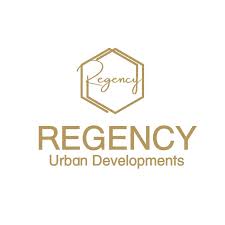
regency
regency
developer.verification
5
Projects
0
Launches
Contact
regency
0
Reviews
Core Evaluation
Comprehensive assessment of developer's core competencies
Track Record
Regency Urban Developments (Regency Developments) has a longer history (30+ years experience) in real estate. The company’s leadership and team have been involved in successful projects since the 1990s. According to company information, Regency has delivered at least 5 significant projects prior to its current ventures. These include commercial and administrative complexes in Egypt (e.g. Crown Mall in New Cairo, Five Stars Mall in 6th October City) and even contributions to projects abroad (a Wooden Bakery mall in Riyadh). This track record indicates that Regency has completed developments before, establishing some credibility. Currently, the firm is focusing on the New Administrative Capital with a series of new projects (Regency Business Tower 1, Regency Medical Tower 2, Regency Tower 3, Regency Inn Hotel, and Shifa Capital Mall). As of 2025, none of the NAC projects have been fully delivered yet, but construction is underway (Regency reports 4 buildings under construction in NAC). Overall, the track record is moderate to strong: past project completions lend confidence, but the final proof will be the handover of these new projects on schedule. (Flag: solid experience, but awaiting NAC delivery performance.)
Financial Credibility
Regency emphasizes its “strong financial capability” and credibility in its corporate literature. Over three decades, it presumably weathered various market cycles. The company continues to invest in large-scale NAC projects, suggesting it has access to capital. Importantly, Regency’s strategy involves an alliance of investors and experienced stakeholders, which likely bolsters its financial base. To date, there have been no public reports of financial distress: no project of Regency’s has been abandoned for lack of funds, and no insolvency proceedings are known. The ongoing work on multiple towers simultaneously in 2023-2024 implies they are funding construction as planned. That said, some recent buyer murmurs (see issues below) raise questions if one project is facing cashflow constraints. But absent hard evidence, Regency’s financial standing appears stable. It has not shown overt red flags like bounced checks or unpaid contractor lawsuits in the news. Financial credibility flag: Generally positive, with a long investor network, though one should monitor NAC project finances closely.
Project Quality
Regency Developments prides itself on delivering high-quality commercial and administrative spaces with “international standards”. Its NAC flagship, Regency Business Tower, is designed as a state-of-the-art complex: in fact, it comprises three interconnected towers (Business Tower 1 for offices, Medical Tower 2 for clinics, and Business Tower 3 for retail) built around a central boulevard plaza. The design has been crafted by a renowned international consultant (The Land Construction) to ensure a standout architectural outcome. Regency incorporates modern features like advanced security, central air conditioning, and smart building management. For example, the Business Tower development will use AI-based systems for facilities control and has engaged a top global facility management firm to operate the property. Amenities such as conference halls, rooftop leisure (sky roof), ample green spaces, and full accessibility for special needs are included to enhance user experience. The focus on fine finishes is evident: administrative and medical units are to be delivered fully finished with high-quality fixtures and climate control. Past projects (like their New Cairo malls) have been described as premium-standard as well. So far, quality appears to be a strong point, with Regency leveraging its experience to ensure design and build meet upscale expectations. Independent reviews note the “exceptional and unparalleled designs” of Regency’s NAC project and its high-end finishings.
Legal & Regulatory Standing
Regency Urban Developments is in good legal standing with no publicly known regulatory penalties. The firm has obtained the necessary approvals for its NAC projects (which are in the Downtown MU2 area of the capital) and even participated in government-partnered developments historically (e.g. constructing a Sidnawi retail project with the Egyptian government). There have been no lawsuits reported in the media against Regency for fraud or contract breaches. The company’s customers have not (yet) taken legal action in public courts, as far as records show. All current projects are officially registered and marketed through legitimate channels. This suggests compliance with real estate laws (such as escrow account use, if applicable, and sales regulations). Flag: ✅ No public legal disputes or sanctions on record, although any emerging customer issues (see below) should be watched in case they escalate legally.
Customer Experience
Regency portrays itself as customer-centric, stating that after-sales service and client trust are top priorities. In practice, the company has built a base of repeat investors over years and often highlights that it “earned the trust of its clients through accuracy and integrity”. For its new projects, Regency has customer support channels (hotline 15773 and info email) and active sales offices. They have not rolled out a dedicated app like Modon, but they do engage via social media updates and events. Before-sales transparency: details about unit sizes, prices, and payment plans are openly published (e.g. 10% down payment and up to 6-year installments for NAC units). After-sales: They claim to maintain long-term relationships with buyers. However, recently, some clients of Regency’s NAC Tower 3 have voiced dissatisfaction (see Current Issues) – indicating possible communication or delivery issues affecting customer sentiment. Generally, for earlier projects, there wasn’t public complaint evidence; those seemed to conclude without controversy. Regency’s established presence implies it had a competent customer service track historically, but the true test will be delivering the New Capital units to current buyers. At this time, customer experience can be rated as mixed: on paper highly valued, in practice mostly fine but with a notable pocket of concern emerging in one project.
Market Reputation
In Egypt’s real estate circles, Regency is known as a mid-sized but reputable developer with a focus on commercial projects. It may not have the celebrity status of mega-developers, but within the NAC development community, Regency is regarded as one of the active players leveraging decades of experience. The company often markets its legacy, calling itself a “pioneer of developers in New Cairo and other vital areas”. Having delivered projects in Cairo’s established suburbs, it earned respect for those achievements. For the NAC, local real estate marketing platforms list Regency’s projects prominently, indicating that brokers and agents take them seriously. The firm’s decision to deliver specialized products (like a dedicated medical mall Shifa Capital) also shows a niche reputation for understanding market needs. That said, market chatter in 2024–2025 has hinted at concerns over Regency’s delivery speed – some investors are watchful to see if the company can fulfill its NAC promises on time. There is even a small Facebook community of Regency clients discussing issues (which can hurt its reputation if not resolved). In summary, Regency’s reputation is generally solid, built on past successes, but currently under pressure due to delays in its high-profile new projects. It’s still considered a legitimate, established developer, but perhaps not “top-tier” until the latest projects prove themselves.
Innovation & Sustainability
Regency’s focus has traditionally been on functional commercial developments rather than cutting-edge green technology, but it has started integrating modern concepts in NAC. For instance, Regency Business Tower boasts smart infrastructure: AI-controlled facilities and advanced tech for energy management and security. This indicates an embrace of innovation to enhance building operations. The company also touts the inclusion of 4th-generation building concepts (smart, mixed-use environments) as part of its mission. Sustainability-wise, the NAC projects incorporate green spaces and aim for a 30% building footprint (with 70% open/landscaped area), which is above-average and helps environmental quality. The design dedicates significant space to outdoor areas, natural ventilation, and features like central HVAC optimizing climate control automatically. These elements reflect sustainability considerations (less energy waste, more greenery). While Regency may not market itself as a sustainability leader as heavily as some others, it is aligning with Egypt’s Vision 2030 for modern, sustainable urban development. Also notable is innovation in its product mix – e.g., creating a medical hub (Shifa Capital) to tap into healthcare real estate needs, which is somewhat innovative in concept for the NAC. Overall, Innovation & Sustainability at Regency are present but not radical: the firm is updating its practices to modern standards and adding smart features, which earns it a positive mark in this category.

